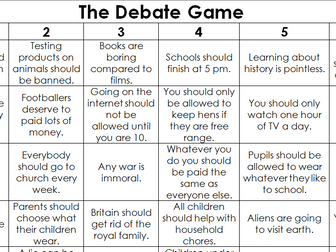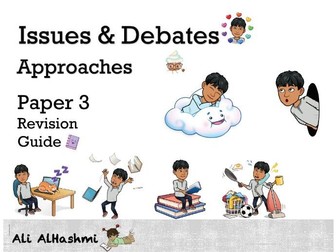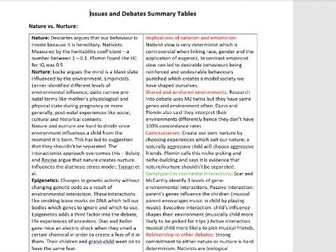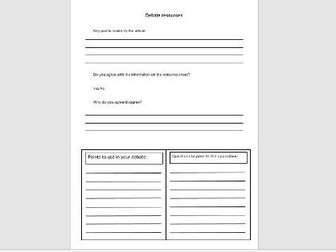
Debate
This resource is a PowerPoint explaining the structure of a classroom debate using Cambridge debate organisation, with a grading criterion included. Slides also explain how to construct an argument when debating as a team, and a debate game ‘Sitting on the fence’ to help students practise.
Debate structure:
Simply choose a debate topic, divide the class in two teams with four judges. Judges watch debate, with each judge assigned to certain students to assess performance using criteria included on slide. Students debating each have assigned role, Introduction (introducing the debate topic), Debate points (arguing one relevant point in favour of their argument), and the Rebuttal (listens to opposing team and rebuts their ideas as final points). At end, judges given 5 minutes to determine which team has the most points. Teacher can moderate debate and time students to maintain flow of debate.


























